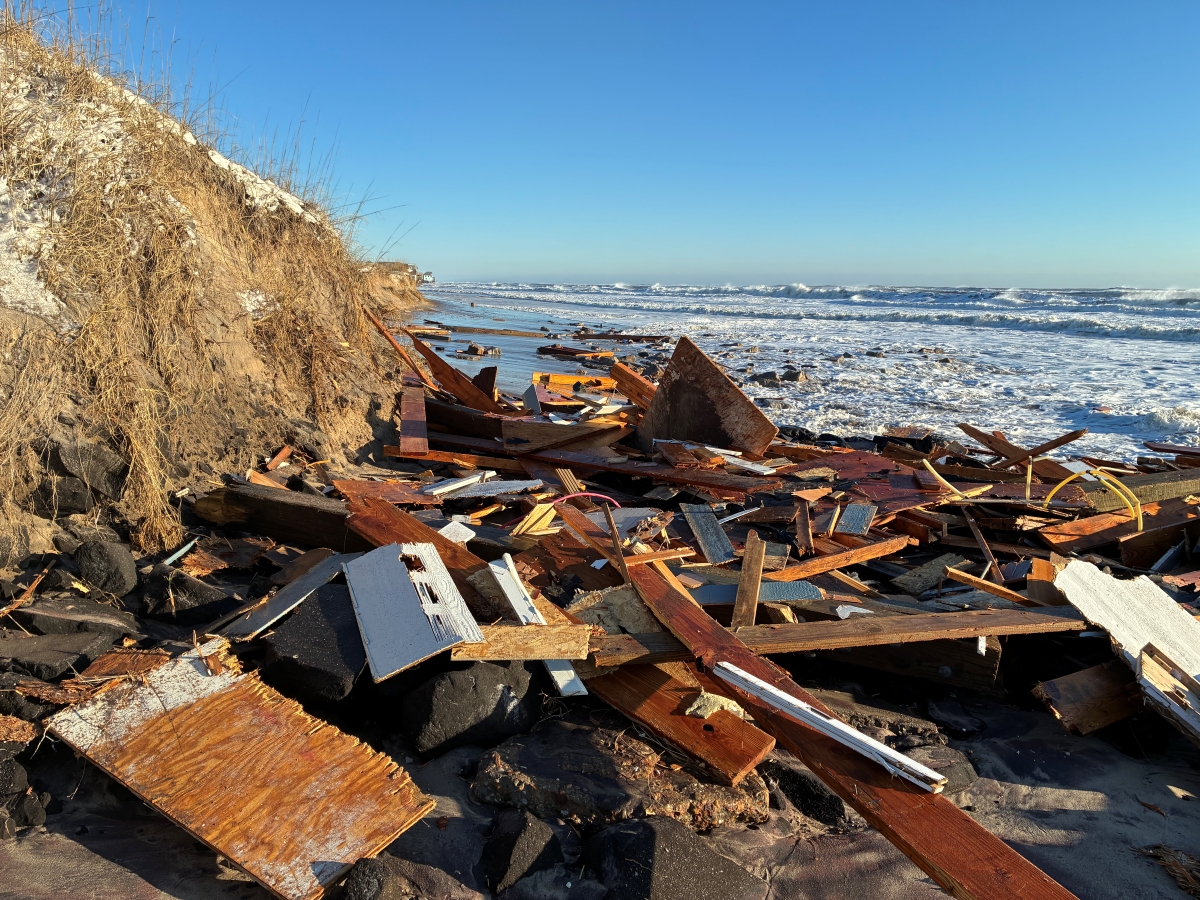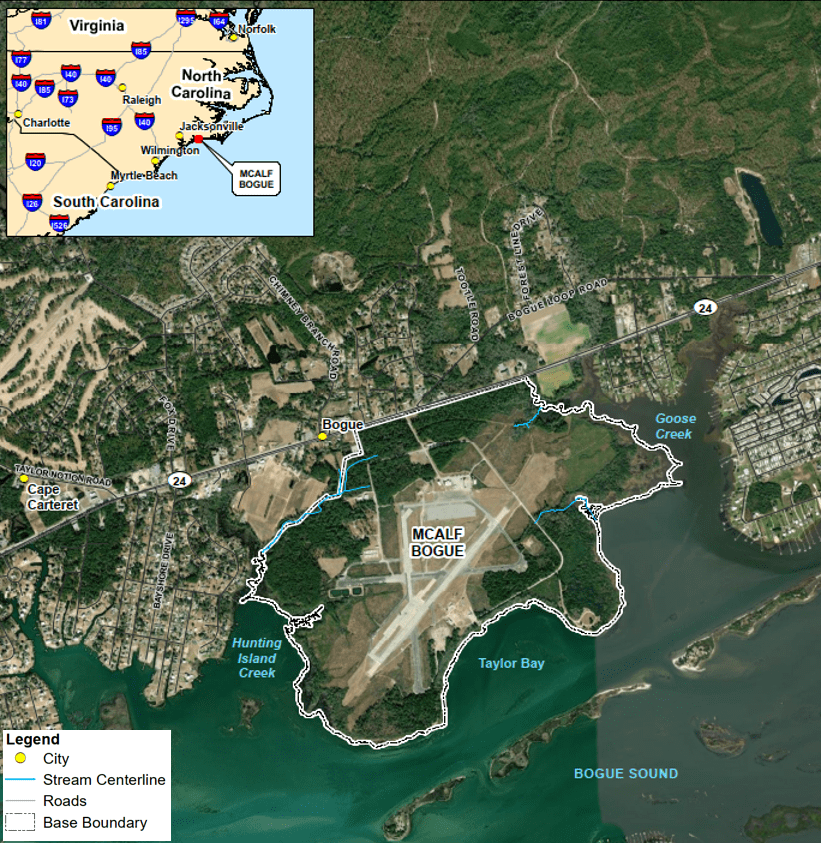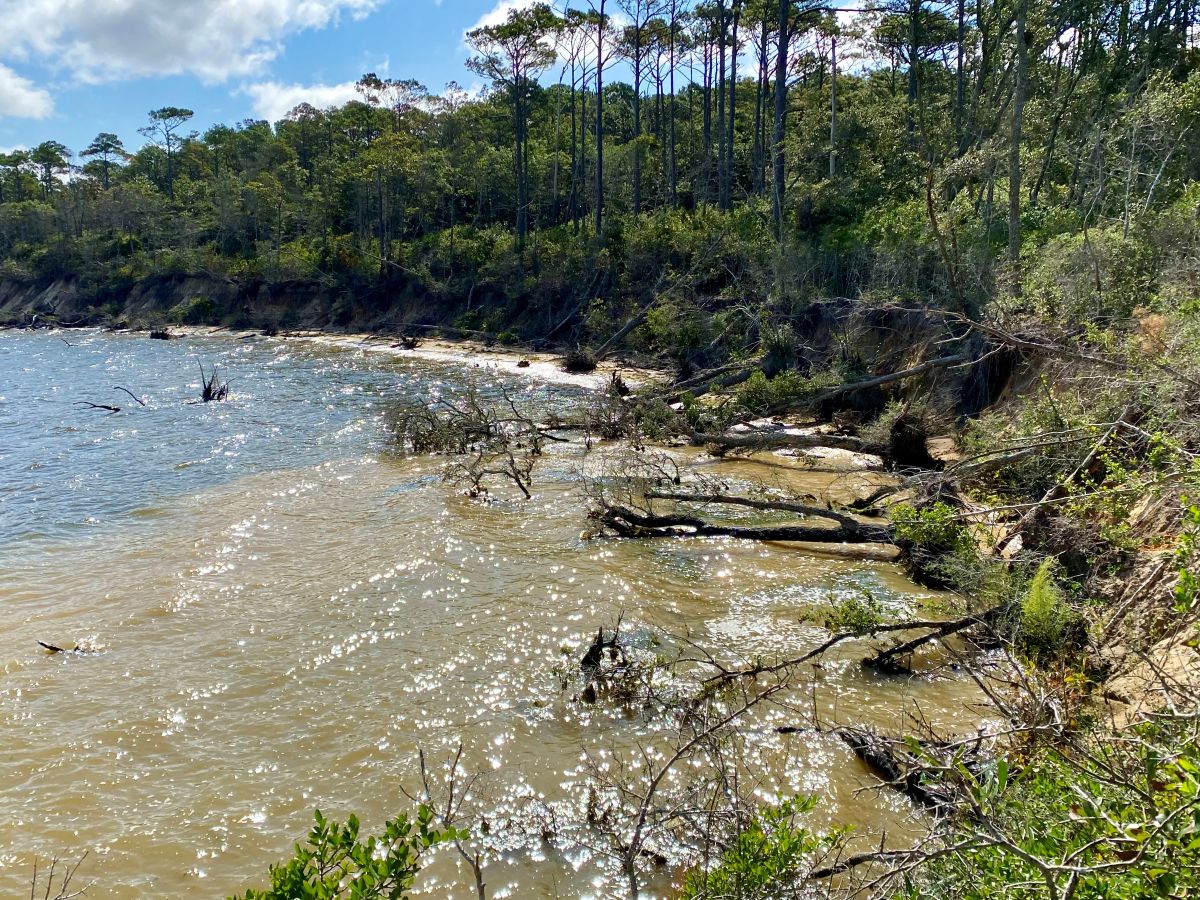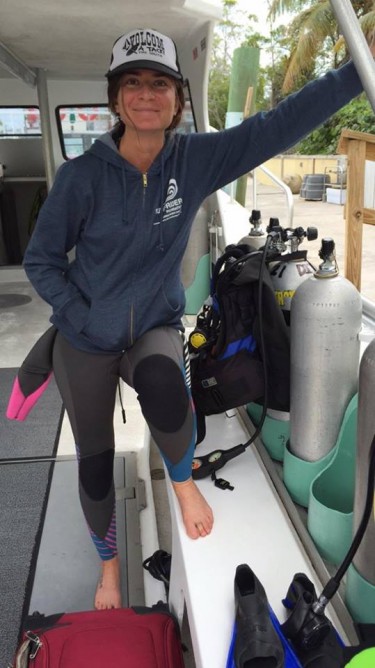
In the classic 1967 film, “The Graduate,” a family friend gives college graduate Benjamin Braddock some advice. “Just one word,” he said. “Plastics. There’s a great future in plastics.”
We don’t know if Ben ever gave much thought to plastics, but one person who has is Lisa Rider, assistant solid waste director for Onslow County. A Beaufort native and lifelong conservationist and beach-and-ocean-cleaner, she will embark Thursday on a month-long cruise with 13 other women in South America to raise awareness and study toxic pollution and its effects on public health. Rider will focus on collecting and analyzing plastics.
Supporter Spotlight
There’s a lot of it out there, she said. Everywhere. “Global plastic production reached approximately 290 million metric tons in 2012, a 620 percent increase since 1975,” Rider explained. “According to recent reports, there are now more than 100 times more plastic pieces in the Pacific than plankton. Our oceans are drowning in plastic.”
That’s the message she’ll take to the other side of the world on the Sea Dragon, the 72-foot sailing ship that will take the women across the mouth of the Amazon River from Brazil to Guyana. The trip is sponsored by Pangaea Exploration, a marine conservation organization that sails the world to advance exploration, education and conservation.
“We’re working to encourage an international dialogue about plastics, including ocean plastics that contain toxic chemicals, and to share evidence that links these chemicals with the rise in cancer rates,” Rider said of the cruise. “My personal hope is to help create global awareness about the connection between the health of the world’s people and the health of our world’s oceans. This all starts with the products we choose to consume on a daily basis.”
All of this has come naturally, but also as part of an evolution, for Rider. “I grew up on the water,” she said. “I started sailing when I was 12. I surfed. I dove. I did it all. And when I was 12, in the Girl Scouts, I did my first beach cleanup. I was hooked, and I’ve been doing that for 25 years now.”
After college, Rider went to work – naturally – for the Keep Onslow Beautiful program, which she still coordinates for the county where she now lives. She’s also proud of the county’s solid waste department. Onslow converts the methane at its landfill to energy and has greatly expanded its recycling efforts during Rider’s tenure.
Supporter Spotlight
All along, though, her desire to focus on marine debris – and the implications of the astounding amount of plastic in the water, nearshore and in the open ocean, has grown.
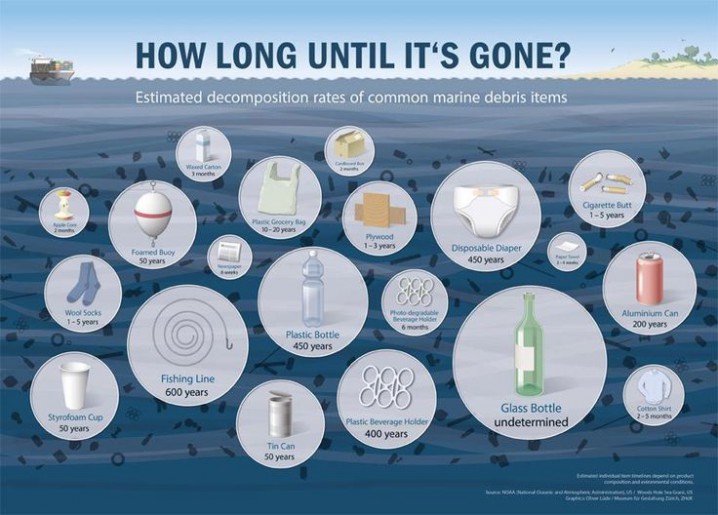
In the county, she started a marine debris symposium, which is now three years old and has gone statewide. People from all over the world, Rider said, have now seen that effort in one form or another, and are doing similar things.
She writes conservation articles and blogs and volunteers for a number of conservation groups. Her work to reduce marine plastics has been recognized in the state and helped her get invited to be a “citizen scientist” on the expedition cruise.
“It’s such an honor to represent North Carolina,” she said. “To be part of this is just amazing. These are women from all over the world. It’s very exciting. I want to learn all I can, and I want to bring what I learn back to Onslow County and North Carolina. There’s a lot more we can do here.”
Rider knows full well that the past few years have not been the best for environmental policy and legislation in North Carolina, and said it’s been somewhat tempting, at times, to move on to somewhere where things are moving more in the direction she’d like to see.
At the same time, though, she’s incredibly proud of her state. “I just don’t want to be one of those people who does that (gives up),” she said. “I want to – no, I feel an obligation – to stick around and do what I can to protect all of things I enjoyed when I was growing up on the coast so they are still here.”
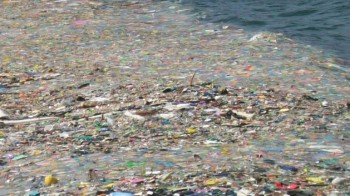
And the plastic problem, she said, is worldwide: “They are even finding micro-plastics in the polar ice caps. And National Geographic says that 90 percent of all seabirds have ingested plastics.”
The only answer, Rider and many others believe, is for all of us to buy into the notion that we are responsible. Even though we can’t clean it all up, we’re the only ones who can stop making it worse, Rider noted. We can help clean it up, she went on, a little at a time.
Some people, she said, contend that it’s a corporate problem; corporations produced the plastic bags and bottles and other items. But we’re the ones who buy the products.
“It’s time we started voting with our wallets,” Rider said. “If we don’t buy them, they don’t sell them.”
As part of expedition, Rider heads first to Recife, Brazil, to study solid waste infrastructure on land, then is to set sail with the rest of the crew to study plastic accumulation in the Atlantic Ocean, both at the surface and at depth.
She’ll sample plastics contaminating the oceans and collect and analyze water samples for toxins and micro-plastics. Other research and science will take place onboard and as part of several university studies around the globe.
“This is a global issue with the need for global collaboration, and that’s why I love the expedition concept,” Rider said. “These women are from all over the world, and they put their jobs and family aside to take the time to work on the issue as a group and create global connections that will continue to inform and inspire future generations.”
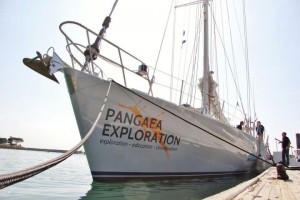
The vessel itself is a wonder. The steel-hulled Sea Dragon was built in the United Kingdom in 2000. Formerly known as CB 37, she is one of 11 second-generation yachts built for the Global Challenge Race, one of the longest, most demanding ocean voyages ever made. In her new role, the boat provides a superb platform of rugged capability, capacity and efficiency with a naturally low environmental footprint – perfect for remote sailing expeditions.
It’s designed to thrive in the southern ocean and safely handle the world’s worst sailing conditions, and is set up specifically for volunteer crews with limited sailing experience. With a crew capacity of 14, and a cruising speed of 10 knots, she is a genuine ocean explorer.
There’s a refrigerator and freezer to keep the crew in fresh food for the duration of the voyage. The vessel is also equipped with twin satellite phones, high-frequency radio and all the modern navigation equipment to keep the crew safe and connected despite being well offshore.
The vessel has lab space, a dissecting microscope, surface net trawling capability and working deck space, plus, onboard freshwater making, extended fuel reserves and almost one kilowatt of wind/solar power.
Rider said she can’t wait to continue and expand her efforts to educate others in her community about plastics, their link to health issues and the solid waste issue in general. She works with college students and high school students, and believes those even younger are key to addressing the problem both short- and long-term.
“This is such a great opportunity,” she said. “There is so much to learn, and I hope I can use it to benefit all of us.”
To Learn More



